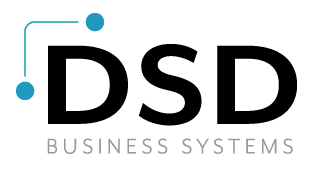Overcoming Tax Challenges for Manufacturers and Distributors
October 7, 2021
by Jared Bollier, Digital Marketing Analyst
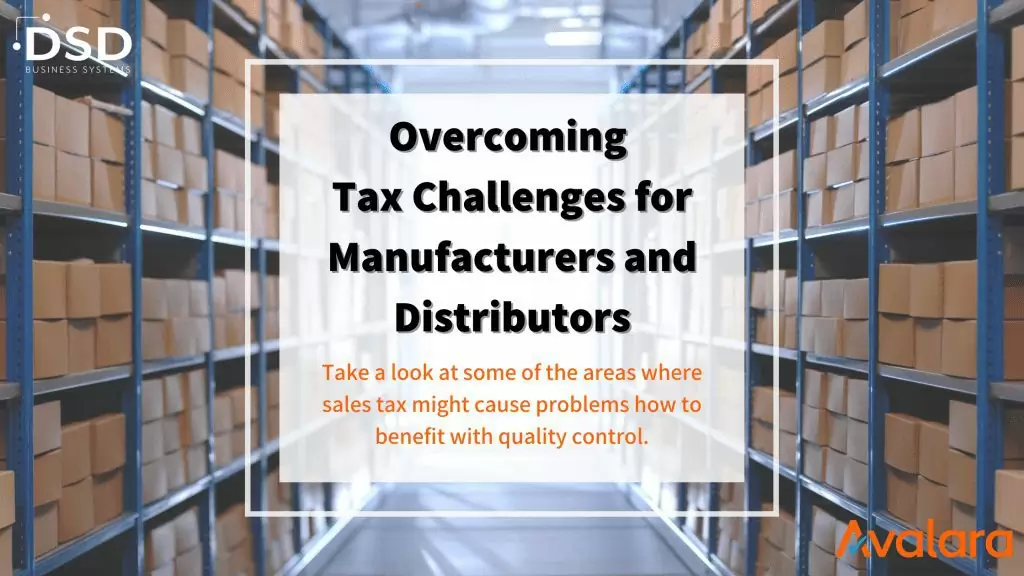
A repeatable, consistent procedure, as every good manufacturer knows, allows for better quality control. Quality control also aids in ensuring compliance. Avalara has helped take a look at some of the areas where sales tax might cause problems for manufacturers and distributors, and how they could benefit from a quality control approach that lowers costs, reduces risk, and enhances performance:
Selling to Retailers
Selling to Consumers
Taxability and More
Mfg. Tax
Drop Shipping
Sales Tax Nexus
Tax Compliance
SaaS Sales Tax
Sales Tax Implications of Selling to Retailers (Resellers)

Both manufacturers and distributors make direct sales to retailers or other distributors. Sales that are intended to be resold to consumers can be exempted from sales tax collection under a resale exemption.
Since sales taxes are required to be paid only once, the theory behind a resale exemption is simple: the customer (consumer or end user) will pay sales tax on the full retail price so when the reseller purchases from the manufacturer or distributor, they can be exempt from paying sales tax on that transaction.
Resellers who want to take advantage of the exemption must provide current and valid proof of their reselling intentions to manufacturers and distributors. The most common form of this proof is the Exemption Certificate. In order for exempt purchases to be documented properly, a manufacturer or distributor must maintain exemption certificate information for each state or locality where the reseller receives product. The same restrictions apply when a manufacturer sells to a distributor or forwarder who plans to collect tax on their own direct sales or sell the products to another reseller.
If a producer exclusively sells to large distributors or wholesalers that receive shipments in a few locations, this may mean less than 50 certificates. However, distributors with multiple resale customers must maintain and continually update exemption documentation for all their resellers and any associated ship-to locations in order to ensure the asserted resale sales tax exemption is valid and properly documented.
Distributors must also maintain their own tax-exempt status and submit information about their exemption certificates to any manufacturer or supplier with whom they do business. After all, in the eyes of a manufacturer or supplier, they are considered a reseller.

Sales Tax Implications of Selling Direct to Consumers

Some manufacturers offer their finished goods directly to consumers. Spare parts, updates, replacement wear items, and even repairs are more prevalent sources of consumer-direct sales for manufacturers. Direct sales to consumers, even if they do not include huge sums of money or full objects, usually entail the collection and remittance of sales taxes.
Consumer sales are typically conducted over the phone or via an internet interface or ecommerce store. A functioning and accurate web interface to sell your parts and products over the Internet is an essential feature of selling straight to consumers in today’s environment. Integration of sales tax norms and laws is crucial to ensuring a seamless and trouble-free online checkout procedure for customers. It is your responsibility to verify that each taxable sale is subjected to accurate and updated rates, taxability rules, and boundaries. Not all products, services, or parts, however, are created equal.
Manufacturers and distributors under pressure to save costs look for technologies that can automate their processes, lowering costs and enhancing overall quality control. Customer satisfaction depends on choosing an automated sales tax system that interfaces with your online shopping cart and provides immediate and correct sales tax calculations. Adjusting the sales tax after the shopping cart experience delivers a final cost can cause heartburn with your customers when they see that the online statement does not match their credit card amount.

Input Items Taxability, Use Tax, and Direct Pay Permits
Manufacturers are typically based in one or two states, thus their risk of product taxability is reduced, right? This may be true in the case of sales tax responsibilities, but not always in the case of use tax duties. For their own usage tax burden on products consumed or services obtained, the manufacturer must assure correctness.
The taxability of products has an impact on what you buy to use in your manufacturing process. Items pertaining to transportation or perhaps a component of a finished product. Some products are not taxable when used to build manufacturing equipment, but they may be taxable when used to repair manufacturing equipment, depending on the state. How do you handle taxability if your product is a little bolt, for example, and certain of its uses are taxable while others are not? Do you buy everything up front and pay sales tax? You’d then have to keep track of the tax you paid on products that were utilized for an exempt purpose, calculate it, and request a refund.
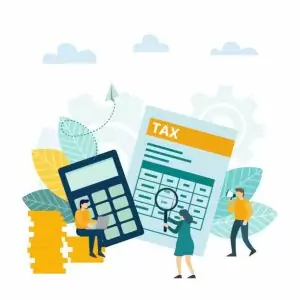
Manufacturers face a unique issue in accurately identifying use tax liability, properly exempted items, and properly taxed things. According to the Connecticut State Department of Revenue, “…a determination of the proper rate of tax is dependent on the type of item purchased and how and where the manufacturer will use it.” Again, using bolts as an example, they may be used in the manufacturing process on equipment, but also on a conveyor. Conveyors may or may not be deemed part of the industrial process depending on the state. Because it is used to transport the goods to a final location or to shipping, which may or may not be taxable in a given state, the conveyor may be considered part of the inventory movement process.

Many states, as an alternative, enable manufacturers to use “Direct Pay Permits,” which allow them to make purchases without paying sales tax. When a part acquired with a Direct Pay Permit is taken from inventory, it must be recorded for how it is used, and tax must be paid if it is used in a taxable manner, or usage must be tracked if it is used in an exempt manner.
Another issue that manufacturers encounter is when they make large acquisitions and then distribute them among different internal plants or sites. When plant A runs out of bolts, they are ordered from a central inventory rather than from a vendor. In order to determine taxability, the central inventory must monitor where each item travels and for what reason. A bolt for a conveyor system repair, for example, can be taxed in one state but exempt in another. The manufacturer must be aware of the following:
- The inventory item used was a bolt
- Which state it was shipped to
- The purpose of the bolt
- The taxable nature of that purpose
Once the use and taxability of an item has been determined and documented, you must ensure that the correct amount of use tax is accumulated for each item and that a use tax return is filed on time. Depending on the item and how and where it is used, there may be numerous distinct tax rates in some states. When it comes to whether or not you can use Direct Pay Permits, each state will have its own set of requirements for a manufacturer. You must apply and be authorized, as well as fully comprehend what you can buy tax-free with the Direct Pay Permit.
The Taxation of Manufacturing Equipment
In most states, manufacturing equipment is exempt from sales tax. As with all things tax, however, there are notable exceptions. As a manufacturer of goods in any state, you must be knowledgeable of what inputs (equipment, raw materials, parts, etc.) are taxable and under which situations.
State
Specific notes on sales tax for manufacturing equipment
Source
Alabama
State manufacturing machinery and equipment tax rate of 1 and 1/2 percent.
Alabama Department of Revenue
Hawaii
Manufacturing equipment is taxed at a rate of 0.5 percent.
Hawaii Department of Taxation
Kentucky
While manufacturing equipment is taxed, there are exceptions.
Kentucky Legislature
Mississippi
Sales of "manufacturing machinery or machine parts" are subject to a 1.5 percent sales tax rate.
MS.gov
Nevada
Sales/use tax "is imposed on the sale, transfer, lease, rental, use, or other consumption of tangible personal property for consideration" with no exception for manufacturing equipment.
Nevada Department of Taxation
New Mexico
Manufacturing equipment is taxable, but an investment tax credit may apply.
New Mexico Department of Taxation & Revenue
North Dakota
Exemptions may exist for manufacturing equipment depending on the situation.
North Dakota Department of Commerce
South Dakota
"South Dakota does not exempt Industrial or manufacturing equipment".
South Dakota Department of Revenue
Sales Tax Implications of Drop Shipping by a Manufacturer
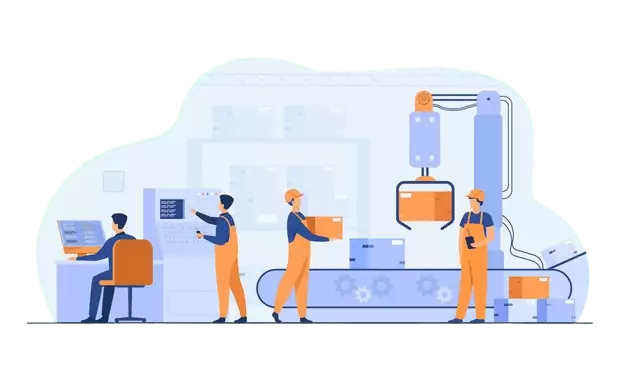
A distributor or wholesaler may request that the manufacturer drop ship their product to their location or to the location of their customer. If you’re delivering directly to the distributor and the goods is tax-exempt for resale, you’ll only need resale documentation and no tax is required. However, if you’re shipping directly to a buyer, the sale is complicated by the various nexus combinations that may necessitate collection or paperwork.
Knowing what documentation you need to maintain for which states becomes a major challenge—especially as ship-to destinations may vary widely if your customer, the distributor, has you ship to customers in numerous states. As we have seen, whether the product itself is taxable or exempt is not always an easy question. But when a manufacturer drop ships, the freight, handling and/or delivery charges may also be taxable. Every state considers freight costs differently—some only tax a portion of the cost, others tax the whole amount, and some don’t tax it at all.
Your tax department should conduct this research on a regular basis to guarantee that your company maintains current with modifications and new shipping destinations as your distribution system expands.
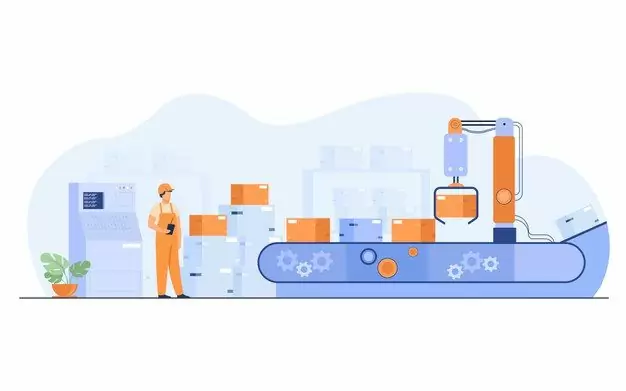
Installation, Repairs, and Sales Tax Nexus

In states where your production or distribution hub is not located, installing finished items or even servicing functional models can create sales tax nexus. Each state determines what constitutes installation or repair services, as well as whether your service team’s entry into the state and completion of the job establishes nexus, triggering sales tax collection and documentation duties.
To make matters even more complicated, if you hire a third-party provider to handle your product’s repairs or installation, you may have created a condition that qualifies as nexus. State-by-state differences exist in terms of which services are taxed and how they are taxed. For many producers, keeping track of this information for each state can quickly become a nightmare.
When it comes to complying with any potential liability to collect and remit sales and use tax, knowing whether installation services and repairs constitute nexus and under what conditions is crucial. When entering new states with any form of company activity, it’s always a good idea to conduct a sales tax nexus analysis to see if your actions in that state may result in sales tax liability.

A Repeatable, Consistent Process for Sales and Use Tax Compliance
As with other manufacturing processes, having a repeatable, consistent process with sales and use tax compliance means automation. Automating sales and use tax compliance with a solution that ensures that consistent, accurate process means a solution that delivers:
- Accurate sales and use tax calculations for collections that take into account product taxability, location, rules and regulations.
- Best practices in managing your sales and use tax processes and easy access to all data in case of an audit.
- An exemption certificate management process that enables digital collection and storage of exemption certificates as well as transaction association and timely renewals.
- Up-to-date sales and use tax rates and information.
- Flow-through returns processing that provides a liability worksheet for review for each return filed, empowering your company to have oversight and visibility to all your sales and use tax liabilities and remittance.
Manufacturers and distributors can keep up with the latest changes in sales and use tax information by using an automated solution for sales and use tax compliance. Audit risk and potential unfavorable assessments are reduced by consistency, repetition, and accuracy. The following are essential qualities to look for in an automated solution:
- Easy integration with your back-end financial applications and/or inventory management software.
- Ecommerce integration capability.
- Geospatial technology to ensure “to the rooftop” level accuracy for locations.
- Accuracy and speed.
- Accessibility of information—anywhere, anytime.
SaaS Sales Tax Management Solutions Can be Cost-Effective
When looking for a solution to help automate your sale tax process, numerous options are available. The options range from lookup tables to dedicated software located on a resident computer to Software-as-a-Service (SaaS) options. The benefits of using a SaaS solution include:
Eliminate Burden on IT
Reduced or eliminated IT support.
Accuracy
Real-time, immediate calculations.
Cost Reduction
No new hardware or software investment.
Easy Access to Info
Reduced or eliminated IT support.
Reporting
Reporting and management of sales and use tax data and exemption certificates in a centralized database.
Avalara’s AvaTax, for example, provides seamless interaction with your existing Enterprise Resource Planning (ERP) and financial systems, in addition to these advantages. This feature allows you to link exemption certificates to clients and transactions, making it easier to handle invoices that include sales tax and/or exemption status.
Your organization can maintain a quality procedure by using a certificate management system that allows you to track renewals automatically, collect and store certificates online, and streamline workflow with tax department oversight. And that high-quality process will lower your chances of being audited and missing deadlines.
